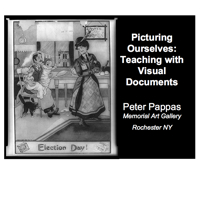There is a growing recognition that ninth graders flourish in the unique environment of a Ninth Grade Academy. These small learning communities improve freshman transitions with a supportive environment, dedicated faculty, counselor and administrator. (Note: See my more recent NGA blog post updates 2007 and 2010. )
Recently, I offered a one-day planning workshop for a consortium of high schools in eastern and central Kentucky. The session was sponsored by the Pike County Schools and the Kentucky Department of Education. The goal of our workshop was to guide NGA design teams from “Idea to Implementation.”
I was joined by Matt Laniak, principal of Eastridge High School at East Irondequoit CSD. Matt and I had collaborated in the design and launch of the NGA – Matt was the it’s founding director and I was then serving as the district’s Assistant Superintendent for Instruction.
Our workshop perspective was "from the frontline,” with activities, resources and discussion to help participants address planning elements – Making use of data, Selection of faculty, Fostering faculty teamwork, Working with feeder schools, Professional development, Curriculum development, Scheduling, Physical plant, Student conduct, Support structures, Partnering with parents, Working with stakeholders.
Participant evaluations suggest it was a highly successful session –
“The workshop had a tremendous impact on our planning, it gave us a blueprint to go by – thank you so much.”
“Engaging, interactive, informative, and very motivational.”
“Real life case studies from presenters who have walked the walk."
“I am so excited to implement the NGA at our school after this workshop. – thank you.”
“Well-organized, the presenters have actually faced the problems we have. So many ideas to make our planning easier.”
Workshop resources include:
Participant Planning Guide 39KB PDF
Q and A – launch a NGA 53KB PDF
PowerPoint Handout 1.1MB PDF
For more resources visit my Small Learning Communities Website and see video interviews with the Ninth Grade Academy students and teachers.
Here's a 55 minute RealPlayer video of a conference presentation I did for the Oregon Dept of Eductation called "9th Grade Academy – A Small Learning Community that Works." If you need RealPlayer click here.


